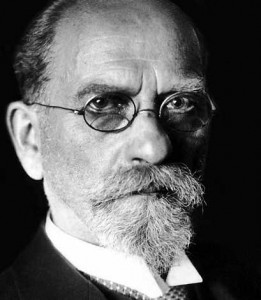 This paper primarily takes the form of an introduction to and a clarification of Husserl’s account of “phenomenological psychology”. This is a discipline that comes very close to phenomenology, and whose boundaries often seem to blur with those of phenomenology (and Husserl’s way of presenting such an account raises, rather than clarifying confusions).
This paper primarily takes the form of an introduction to and a clarification of Husserl’s account of “phenomenological psychology”. This is a discipline that comes very close to phenomenology, and whose boundaries often seem to blur with those of phenomenology (and Husserl’s way of presenting such an account raises, rather than clarifying confusions).
Specifically, in this paper, I disambiguate between three different meanings of “phenomenological psychology” that, I claim, can be found in Husserl’s works. Contrary to the received view, in fact, I argue that this term is used (at least) to refer to:
(1) The eidetic science of the region ‘psyche’; i.e., the science that deals with the constitution of the psyche.
(2) A ‘constitutive phenomenology of natural attitude’; i.e., a sort of ‘mundane’ phenomenology;
(3) A science that deals with the grammar and the syntax of the psychic life; with a sort of morphology of the structures/acts of consciousness.
I end showing that all these three characterizations of phenomenological psychology, despite their differences, give reason to support the hypothesis that the difference between phenomenology and phenomenological psychology is epistemological (in the sense of a change of attitude) rather than ontological (as, for example, that between part and whole).
Created by EMANUELA CARTA

This is actually useful, thanks.
Thanks, it’s quite informative
Thanks, it’s very informative